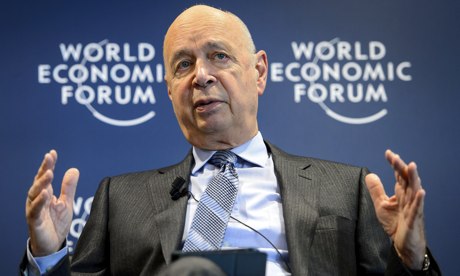IMF to revise upwards global growth forecast: Christine Lagarde

(International Monetary…)
.....NAIROBI: The International Monetary Fund will revise upward its global growth forecast in about three weeks, Managing Director Christine Lagarde said Tuesday in Nairobi.
"We will be revising upwards the global forecast of the economic growth," she told a press conference in the Kenyan capital, adding that it would be premature to say any more.
Lagarde, who was wrapping up a two-day visit to Kenya, gave no reason for the revision."We will be revising upwards the global forecast of the economic growth," she told a press conference in the Kenyan capital, adding that it would be premature to say any more.
When it issued its latest World Economic Outlook report in October, the IMF lowered its forecasts, saying that global growth "remains in low gear".
It said it expected the global economy to grow 2.9 percent year-on-year in 2013 and 3.6 percent in 2014. That represented a downward revision of 0.3 and 0.2 percentage points, respectively, from its July estimates.
Emerging-market economies, although still accounting for most global growth, were losing more momentum than previously thought, the IMF said in November, although advanced economies, in particular the United States, were showing signs of picking up.
Read More Here
.....
World Economic Forum chance to ‘push the reset button’ on global economy
The World Economic Forum is an an opportunity to “push the reset button” on the global economy and to seek solutions to fundamental issues, according to the body’s executive chairman. Speaking ahead of the next week’s gathering of world leaders and power brokers in the Swiss ski resort of Davos, Klaus Schwab said the world…Watch Video Here
.....
Davos debates income inequality but still invites tax avoiders
The rich and powerful at the World Economic Forum are not as worried as they should be about the gap between rich and poor

Mind the gap: World
Economic Forum founder Klaus Schwab has warned against the concentration
of wealth in too few hands. Photograph: Fabrice Coffrini/AFP/Getty
Images
Those on the outside might imagine that the business leaders who gather in Davos each year to chew the fat are concerned only about enriching themselves. Critics might imagine that the company bosses, jetting to the World Economic Forum 5,000 feet up in the Swiss Alps in their helicopters, mink-clad trophy wives in tow, are oblivious to the struggles of the poor. But they would be wrong.
As the rich and powerful make their last-minute preparations for their week up the magic mountain, they want the message to be sent out that they understand about inequality. They feel the pain. Truly they do.
The evidence for the "Davos gets it" line comes from the annual risk report compiled by the WEF. It asks 700 of its members what they think will be the most pressing threats to the global economy over the coming decade. Inequality is seen as the most likely risk.
Klaus Schwab, who created the Davos meeting in the 1970s, is pleased about that finding. As a good old-fashioned social democrat, he wants his members to take a history lesson and realise that capitalism cannot survive if income and wealth become concentrated in too few hands. For much of the 20th century, the more far-sighted business leaders realised this. They understood that their workers needed reasonable wages so that they could buy the goods and services they were making. They grasped the idea that a market system in its rawest form was incompatible with democracy and so acquiesced while some of the rough edges were knocked off via progressive taxation, welfare states and curbs on capital. Deep down, they feared that the Russian revolution would provide a template for disaffected workers in the west.
Attitudes have changed in the past 30 years. The so-called Great Compression of incomes seen from the 1930s to the 1970s went into reverse, with the top 1% grabbing the fruits of growth. The rich used their money and their influence to ensure that governments did their bidding. After the Berlin Wall came down, there was no rival model and less need to show restraint. With the arrival of a unipolar world came a return to a more aggressive form of market economics that had not been seen since the early days of industrialisation.
Read More Here
.....














No comments:
Post a Comment
Hello and thank you for visiting my blog. Please share your thoughts and leave a comment :)